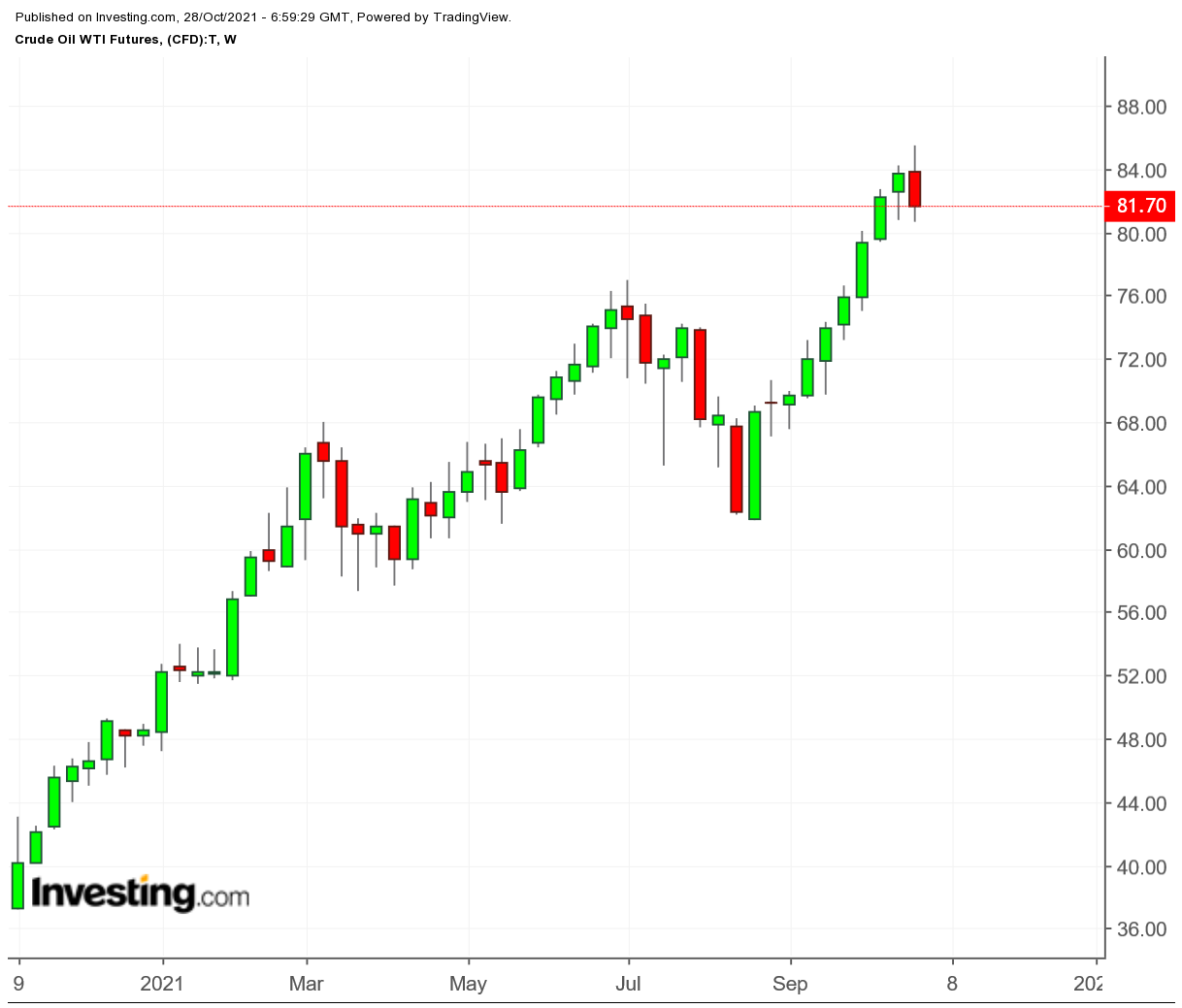Leaders from countries around the world will be gathering in Scotland for almost two weeks starting on Sunday, Oct. 31, for the UN Climate Change Conference, more colloquially referred to as COP26, to discuss climate change and restrictions on fossil fuel emissions.
COP26 is expected to be the most important and impactful environmental gathering since COP21 in Paris in 2015, which led to the Paris Climate Agreement. As we're likely to see an array of headlines and articles about the summit, it's important for oil traders to understand what news from policymakers and environmentalists could impact oil prices in the short and long-term.

Here is a look at four ways that climate environmentalism tries to influence the industry (including COP26 and more) and how traders should assess the impacts.
1. International Agreements/Conference and NGOs
The Nationally Determined Contributions that each country committed to achieving under the Paris Agreement are “legally binding” in theory, but there are no enforcement mechanisms for the U.N. to hold countries accountable. If a state fails to live up to its part of the Agreement, there is nothing the U.N. can do.
In addition, China and India were essentially granted exemptions under the terms of the Agreement. A country’s adherence to its own commitments depends on the will of the government, or the will of the people, to implement it. Some countries take their commitments more seriously than others. As we saw with the transitions in the White House, a change in leadership can mean that a new leader can simply alter participation in this agreement without real consequences.
Traders should be aware of new commitments made at the Scotland summit, specifically updated Nationally Determined Contributions. Headlines about these promises can sometimes impact the market in the short-term. However, unless countries implement these policies, simply making a statement won’t affect the industry or the market in the longer-term.
2. Climate Lawsuits
Every once in a while, we will see a headline about a climate lawsuit being brought by an environmentalist group or government entity to promote green climate policies. The ultimate goal of these lawsuits is to change how the industry does business.
There are roughly 24 lawsuits currently filed by state and local governments in the United States against major oil and gas companies accusing them of contributing to climate change by selling fossil fuels. Such lawsuits take time to work their way through the legal system. Though they tend to generate headlines, lawsuits have not typically changed much about the way the industry operates. We have seen some impacts on details of how the industry operates, but lawsuits have not markedly decreased supply or demand.
Traders should pay attention to some of these headlines for short-term price impacts, but we’ve yet to see lawsuits that have long-term structural effects on the industry or market.
3. Government Regulation
Many governments want to impose restrictions and regulations on the use of fossil fuels and carbon emissions. However, more and more we are seeing signs that the population is not entirely convinced. For example, in Switzerland, where many of the decisions are ultimately made by direct democracy vote (the entire population has an opportunity to vote on a decision) voters rejected a law that would curb greenhouse gas. The Swiss vote makes it almost impossible for Switzerland to achieve the climate targets its leaders want to push at COP26.
Oftentimes government will make announcements about plans for years in the future which grab attention and make people concerned about restrictions on fossil fuel use, but these plans are often not implemented or not implemented as described. When policymakers announce plans for 2030 or 2050, they are unlikely to be in office when the deadline arrives. Remember that these policies are more about gaining the spotlight from a big announcement than about changing the way fossil fuels are used.
But most governments do have incredible influence on their local fossil fuel industries, both over producers of fossil fuels and over the consumption of fossil fuels in their country. For example, in the U.S. under the Trump administration, oil production was encouraged and rose to very high levels. Now, under the Biden administration, the attitude towards oil production is more negative and its regulation of the industry is more stringent. As a result, producers are less inclined to drill new wells, which is contributing to lower oil production—and higher prices—this year.
Traders should know that government regulation has a greater impact on the market and the industry in the long-term.
4. Corporate Behavior
Perhaps the climate change activists' efforts with the greatest impact on supply and demand will come from the oil and gas companies themselves. Companies—especially publicly traded companies—face multiple pressures to support environmentalist climate actions. These include activist boards, public relations and marketing, and investor relations.
Most of these businesses are cutting their exploration and production budget and have been even since 2015. Companies are making these cuts because they want to save money and return more money to shareholders in the form of dividends. This, in turn, should raise the price of a company’s stock, which enriches everyone involved. However, the environmentalist perspective cannot be under-estimated in this almost-industry-wide decision to cut back on exploration and production.
If the trend of lower E&P budgets continues in the years to come—and all indications are that it will continue—we can expect to see oil and gas shortages.
